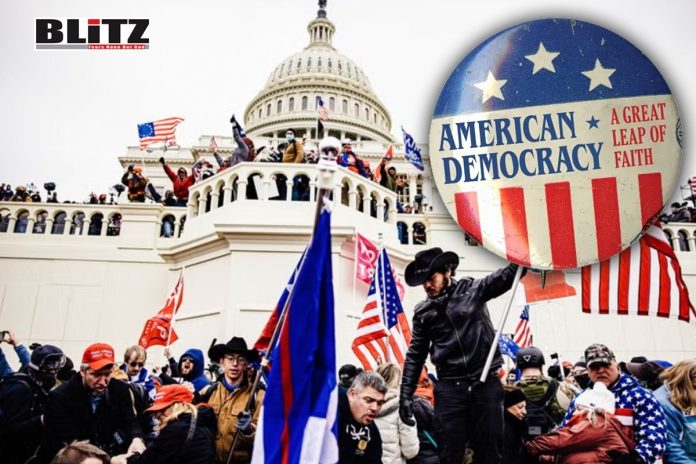As the dust settles on Not-so-Super Tuesday, the American electorate finds itself at a familiar crossroads, confronted with two starkly different visions for the future of the nation. The stage is set for a redux of the 2016 presidential race, with Donald Trump emerging unscathed from the Republican primaries and Joe Biden coasting to victory without a formidable challenger. However, beneath the surface of this political déjà vu lies a landscape fraught with escalating tensions, eroding democratic norms, and existential questions about the soul of America.
At the heart of America’s electoral quagmire lies the enduring legacy of the electoral college-a relic of the Founding Fathers that continues to skew the democratic process. Despite boasting the trappings of a modern democracy, the United States remains ensnared in a system that privileges certain voices over others, perpetuating a cycle of disenfranchisement and division. The decentralization of the voting process has only exacerbated these inequalities, paving the way for voter suppression tactics that disproportionately target marginalized communities, from African Americans to Hispanics and college students.
Ironically, amidst claims of electoral illegitimacy, the 2020 presidential elections were hailed as a triumph of democracy, characterized by unprecedented voter turnout and heightened security measures. Yet, even as experts vouched for the integrity of the electoral process, Republicans seized upon baseless allegations of fraud to justify a wave of restrictive voting laws aimed at consolidating their grip on power. The specter of a “stolen election” looms large, casting a shadow of doubt over the very foundation of American democracy.
Today, the United States finds itself teetering on the brink of a precipice, with over 80% of Americans expressing grave concerns about the future of democracy and the specter of political violence looming ominously on the horizon. Yet, amidst this pervasive sense of unease, a fundamental schism has emerged, pitting two diametrically opposed visions of America against each other.
On one side, the Republican narrative of “saving America” is steeped in the rhetoric of Christian nationalism, invoking a vision of a nation rooted in “traditional” values and the sanctity of the white, Christian family. For many Democrats, this vision represents an existential threat to the principles enshrined in the Constitution-a betrayal of America’s secular and pluralistic ideals.
Conversely, Democrats warn of the perils of another Trump presidency, decrying the erosion of liberal democracy and the ascent of an increasingly radicalized Republican Party. The specter of political extremism looms large, fueled by a toxic blend of conspiracy theories and partisan fervor that threatens to tear the fabric of American society asunder.
As the nation hurtles towards November, the outcome of the election remains shrouded in uncertainty. While the Democratic candidate is poised to win the popular vote, the specter of the electoral college looms large, casting a shadow of doubt over the legitimacy of the outcome. With the Supreme Court poised to play a decisive role in any potential legal battles, the stakes could not be higher.
In the face of these challenges, Democrats find themselves grappling with a myriad of obstacles, from lukewarm enthusiasm for Biden to concerns about his age and health. Yet, the notion of replacing him with a new candidate remains a pipe dream-a fantasy that ignores the harsh realities of American politics. With the fate of the nation hanging in the balance, Democrats must rally behind their candidate, recognizing that the alternative could spell disaster for the future of democracy.
Ultimately, the choice facing American voters is clear: embrace the promise of progress or succumb to the siren call of regression. If Biden emerges victorious, the status quo may prevail, albeit with the specter of Republican obstructionism looming large. However, if Trump returns to the White House, the consequences could be catastrophic, ushering in an era of division and discord from which America may never recover.
As our nation stands at this critical juncture in history, the very essence of democracy teeters on the edge of uncertainty. The luxury of complacency is a luxury we can no longer afford; now is the time for decisive action. The eyes of the world are upon us, and the gravity of the moment cannot be overstated. It falls upon the shoulders of every American citizen to make a choice-whether to forge ahead on the path of progress or to risk sliding back into the shadows of regression. The future of democracy, not just for us but for generations to come, hangs precariously in the balance.




